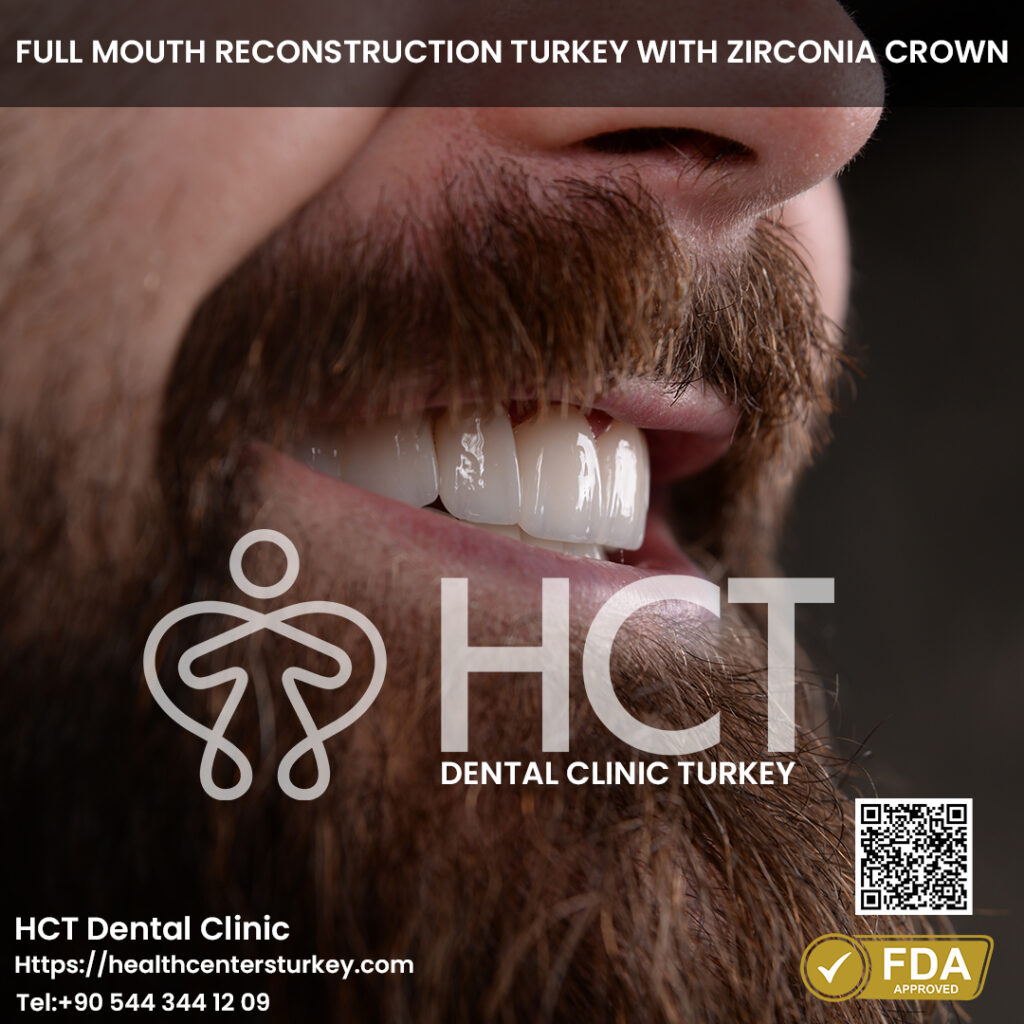Uncover Complete Oral Treatments within Turkey
Uncover Complete Oral Treatments within Turkey
Blog Article
Unlock Your Whitest Smile with Expert Dental Care in Turkey
Dental implants have become a preferred solution for those seeking to replace missing teeth. Understanding how these implants can affect adjacent teeth is crucial for anyone considering this process, as well as for dentists and specialists concerned in dental care.

One vital aspect is that dental implants are designed to be anchored into the jawbone, which implies they're independent of adjacent teeth. Unlike dental bridges, which often require the alteration of neighboring teeth, implants can fill the hole without compromising the health or structure of these surrounding teeth.
This independence helps keep the integrity of adjacent teeth. When a tooth is lost, there can be a natural tendency for neighboring teeth to tilt or shift into the empty area. Such movement can result in misalignment, which can affect chew and overall oral health. By putting an implant, you effectively prevent this potential shift, selling better alignment in the long run.
Leading Dental Clinics Specializing in Orthodontics in Turkey
Additionally, dental implants help preserve bone density in the jaw. A natural tooth root provides stimulation to the encompassing bone, keeping it wholesome and strong. When a tooth is missing, the bone can start to deteriorate as a end result of lack of stimulation. With a dental implant mimicking a natural root, bone loss may be minimized, which not directly benefits adjacent teeth by preserving the general structure of the dental arch.
While dental implants are advantageous, improper placement can impression neighboring teeth. If an implant is positioned too close to a different tooth, it might exert undue stress on that tooth, leading to discomfort or potential damage. Proper planning and imaging methods are essential for avoiding such issues.
Affordable Teeth Whitening at Renowned Practices in Turkey
Moreover, sustaining good oral hygiene is crucial after receiving an implant. If not properly cleaned, surrounding teeth could become prone to dental issues similar to decay or gum disease. This underscores the significance of diligent oral care following the procedure to make sure each implants and adjacent teeth remain wholesome.
Regular dental check-ups are additionally important for monitoring the health of surrounding teeth. Dentists can identify any shifts or potential problems early, permitting for well timed interventions. This proactive approach ensures that both the implant and adjacent teeth can coexist with out complications.
Enjoy World-class Dental Care at Affordable Prices
Another consideration is the influence of implants on bite force. When a single tooth is missing, the load of chewing may shift to adjacent teeth, doubtlessly leading to wear or pressure. Implants restore correct bite dynamics by redistributing forces within the mouth, which might protect surrounding teeth from undue stress.
Some sufferers could raise concerns concerning the appearance of dental implants. Well-placed implants can mix seamlessly with existing teeth, enhancing general click over here aesthetics. In distinction, failing to switch a missing tooth can lead to aesthetic points, together with collapsing of facial structure and adjustments in smile dynamics.
It's also worth discussing the psychological elements of dental health. Experiencing tooth loss can adversely affect one’s shallowness and willingness to engage socially. By restoring your smile with implants, you presumably can positively affect not solely your oral health but also your emotional well-being.
Long-term success of dental implants often hinges on various elements, including the affected person's health, maintenance habits, and the standard of the preliminary process. If adjacent teeth are wholesome and correctly cared for, the likelihood is that they will continue to thrive alongside the implants.
Affordable Smile Enhancement Options in Turkey
In conclusion, dental implants play a crucial role in not just restoring individual smiles, but in preserving the health and structure of adjacent teeth. By preventing shifting, maintaining bone density, and redistributing chew forces, implants can ensure that surrounding teeth stay in optimum condition. Proper placement, hygiene, and common dental visits can additional improve the advantages of dental implants, resulting in a healthier, more confident smile for years to come.
- Dental implants can help maintain the alignment of adjacent teeth by providing a steady anchor, stopping adjacent teeth from shifting into the hole left by a missing tooth.
- The presence of an implant may stimulate bone development within the jaw, serving to to protect the overall structure and integrity of the adjacent teeth.
- Unlike traditional bridges, implants do not require alteration of surrounding teeth, thus preserving their power and anatomy.
- Implants can improve the distribution of chunk forces evenly across the dental arch, reducing the stress on neighboring teeth throughout chewing.
- A well-integrated dental implant can decrease the danger of bone loss in the area surrounding adjacent teeth, contributing to their long-term health and stability.
- The aesthetics of adjacent teeth can be improved due to the support provided by implants, which might result in higher overall cosmetic outcomes.
- With proper placement, dental implants can prevent gum recession round adjacent teeth by sustaining enough dental architecture.
- Implants may help mitigate the risks of periodontal disease in close by teeth by selling healthy gum tissue and providing a washable floor.
- Long-term success of dental implants can lead to improved oral hygiene routines, which in turn advantages the health of surrounding teeth.
- The improved practical ability of an implant can encourage patients to chew more successfully, thus growing saliva production and aiding within the safety of adjacent dental tissues.undefinedHow do dental implants have an effect on adjacent teeth?
What are dental implants and how do they work together with adjacent teeth?undefinedDental implants are artificial tooth roots which might be surgically positioned into the jawbone. They present a stable basis for replacement teeth whereas ensuring minimal disruption to adjacent teeth, preserving their integrity and alignment. Benefit from Excellent Dental Care at Unbeatable Prices.
Outstanding Dental Services Focused on Quality Care
Can dental implants cause problems for nearby natural teeth?undefinedGenerally, dental implants don't harm adjacent natural teeth. However, if the implant Read More Here is not placed appropriately or if there’s insufficient oral hygiene, it may lead to issues such as adjacent tooth decay or gum disease.

Will getting a dental implant change the method in which my adjacent teeth feel?undefinedMost patients report no change in the sensation of adjacent teeth after implant placement. However, it may take some time to adjust to the presence of the implant, much like how one could adapt to different dental restorations.
Can dental implants assist preserve the health of adjacent teeth?undefinedYes, dental implants can help maintain the health of adjacent teeth by stopping bone loss that may happen after tooth loss. This preservation supports the alignment of nearby teeth, reducing the chance of shifting or misalignment.
Comprehensive Dental Packages Featuring Implants
Do I need to modify adjacent teeth when getting an implant?undefinedTypically, adjacent teeth don't want alteration when inserting an implant. This is doubtless one of the advantages of dental implants over conventional bridges, which regularly require reshaping adjacent teeth for help.
How does the healing process of an implant have an effect on close by teeth?undefinedThe healing process entails osseointegration, the place the implant fuses with the jawbone. During this time, adjacent teeth remain unaffected and retain their function, although it’s important to follow post-operative care recommendations. Effective Braces and Aligners provided in Antalya.
Quick Treatment Options for On-the-Go Patients
Can dental implants result in bone loss round adjacent teeth?undefinedIf dental implants are placed correctly and cared for adequately, they should not lead to bone loss round adjacent teeth. In fact, they may help stimulate bone progress, combating the natural bone loss that often follows tooth extraction.
What precautions ought to I take to protect adjacent teeth after getting an implant?undefinedRoutine dental hygiene, together with brushing and flossing, along with regular dental check-ups, is essential. Avoiding hard meals and following your dentist’s aftercare instructions may even protect each the implant and adjacent teeth.
Is it widespread for adjacent teeth to shift after an implant is placed?undefinedIt's not typical for adjacent teeth to shift after an implant placement, particularly when the implant is placed accurately and maintained properly. If there’s any motion, it may be due to other underlying points that should be evaluated by a dental skilled. Report this page